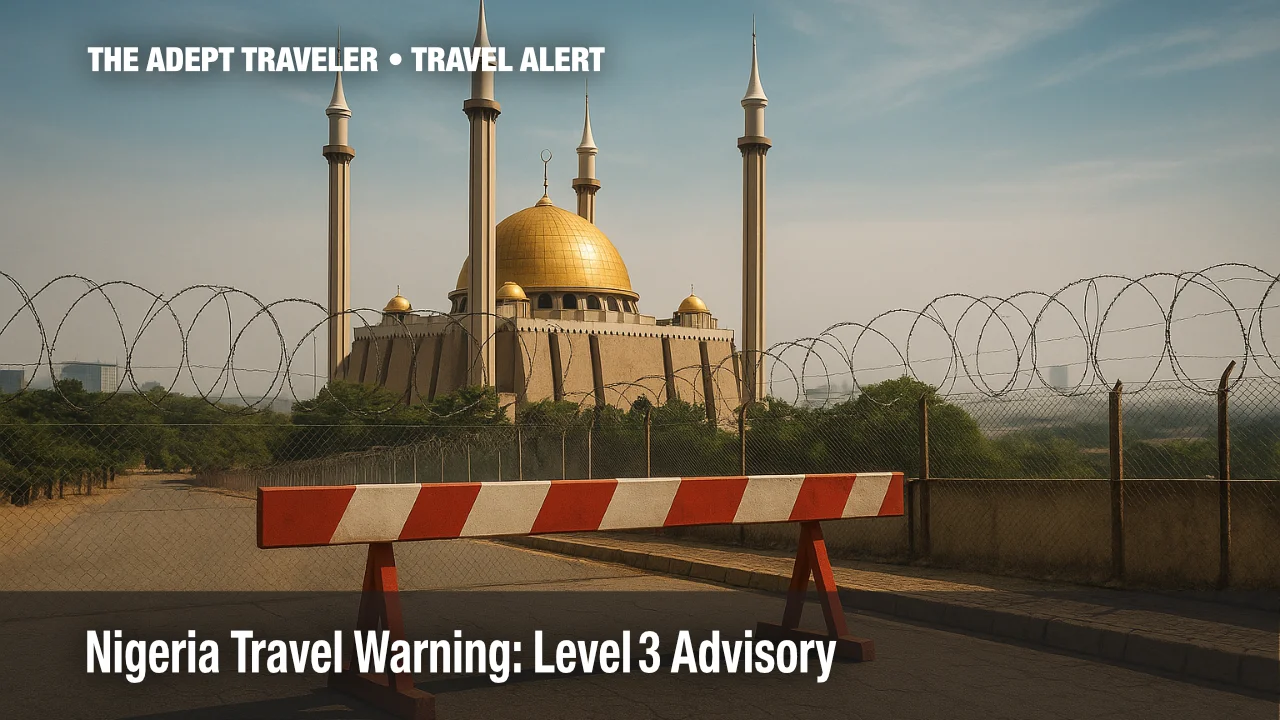On Jul 15 2025, the U.S. Department of State refreshed its Level 3 "Reconsider Travel" notice for Nigeria, adding new language on the patchy availability of reliable medical care. The Travel Warning underscores ongoing threats from violent crime, terrorism, Civil Unrest, kidnappings for ransom, and heavily armed gangs that operate nationwide and in several high-risk states.
At-a-Glance: Severity: Warning, Affected Area: Nigeria nationwide, Effective: July 15, 2025 - Ongoing
Key Points
- Armed groups conduct frequent kidnappings on major roads and in cities.
- Hospitals lack equipment, medicines, and expect cash deposits of about ₦200,000 (≈ US$133).
- Impact on travelers: Emergency evacuation may be the only option for serious illness or injury.
- Federal employees face strict movement restrictions outside Abuja and Lagos.
What Is Happening
Security conditions remain volatile. Boko Haram, Islamic State West Africa Province, and criminal gangs kidnap motorists, raid villages, and attack city neighborhoods without warning. Demonstrations and sporadic ethno-religious clashes add flashpoints. The new element is health-care fragility: many hospitals are poorly equipped, lack trained staff, and demand large cash deposits up front. Essential drugs such as insulin and asthma inhalers are often unavailable, while counterfeit medicines circulate in markets. Ambulance response is slow, and most medical evacuations must be arranged privately, usually from Lagos or Abuja airports.
Official Guidance on the Travel Warning
U.S. officials advise citizens to reconsider all non-essential travel and to avoid sixteen Do Not Travel states, including Borno, Kaduna, and Abia. Travelers who proceed should enroll in STEP, carry a passport valid for six months, and secure visas in advance. The advisory urges door-to-door security, varied routes, and avoidance of road travel after dark. Health advice mirrors CDC guidance: bring a full supply of prescription drugs, update yellow-fever and polio vaccinations, and start malaria prophylaxis before departure. Comprehensive insurance with medical-evacuation coverage is essential because consular staff cannot guarantee assistance outside Abuja or Lagos.
Practical Steps
Before booking, confirm that your airline and insurer allow penalty-free changes for Level 3 destinations. If travel proceeds, engage a vetted security provider for airport pickups and escorted road transfers. Keep a "go bag" with passport copies, visa pages, and an embossed doctor's letter for medications. Pack at least a two-week surplus of prescription and over-the-counter drugs in original bottles, plus a basic trauma kit. Upon arrival, register with your embassy, share GPS tracking with a trusted contact, and schedule daily check-ins. Carry local cash and a credit card, but use contactless payment when possible to reduce robbery risk. For broader context, see our Global Travel Alerts hub. Should violence erupt, shelter in place behind two locked doors until a safe evacuation corridor is confirmed.
Final Thoughts
Despite its vibrant culture and commercial promise, present-day Nigeria demands heightened vigilance. Travelers who cannot secure robust medical and security support should postpone plans until conditions improve. Those who must go should expect delays, power cuts, and network outages, keep a low profile, and stay alert at all times. Respect the current travel warning, and keep embassy phone numbers on speed dial. Travel regulations can change rapidly. Confirm requirements with official channels before departure.

